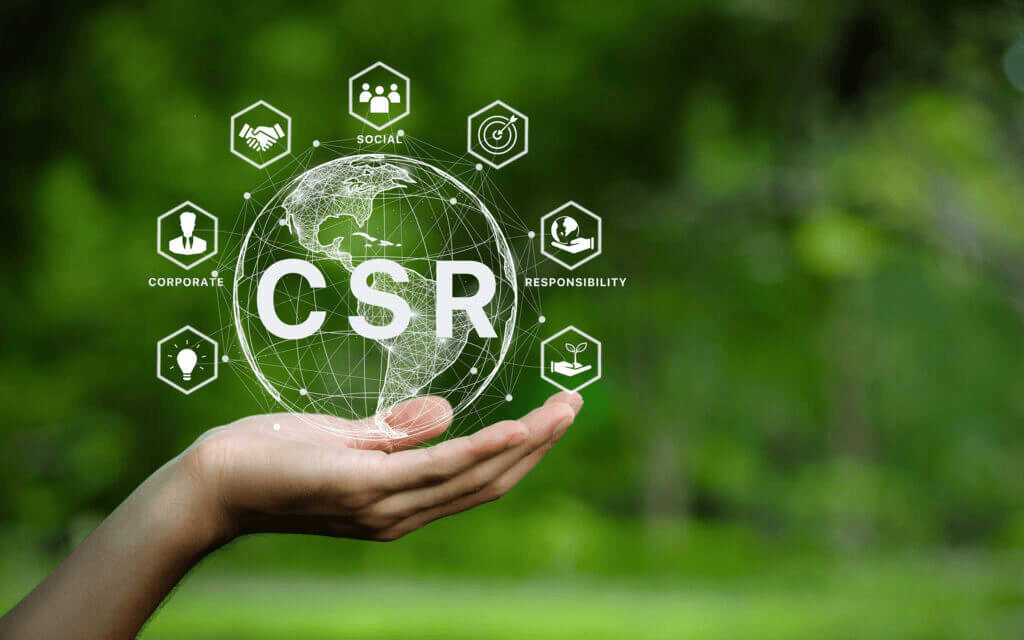
Top Customer Engagement Trends in 2024
May 29, 2024
Mastering Conversational Marketing and Interactive Content for Modern Digital Success
June 20, 2024In today’s increasingly connected and conscientious world, businesses are realizing that their responsibilities extend far beyond profit margins and shareholder returns. Corporate Social Responsibility (CSR) has emerged as a pivotal aspect of modern business strategy, particularly in the realm of marketing. Companies that integrate CSR into their marketing practices are not only enhancing their brand reputation but also building meaningful relationships with their customers and communities. This human-centered approach to marketing is redefining what it means to be a successful business in the 21st century.

The Essence of Corporate Social Responsibility
Corporate Social Responsibility is a self-regulating business model that ensures a company is socially accountable to itself, its stakeholders, and the public. By practicing CSR, businesses aim to be conscious of the impact they have on all aspects of society, including economic, social, and environmental.
CSR initiatives can range from reducing carbon footprints and improving labor policies to engaging in fair trade practices and supporting charitable activities. When these initiatives are integrated into marketing strategies, they not only promote the company’s values but also create a stronger, more emotional connection with the audience.
The Intersection of CSR and Marketing
Marketing, at its core, is about communicating value to customers. When CSR is woven into this narrative, it transforms traditional marketing into a more authentic, engaging, and socially conscious endeavor. Here are key ways in which CSR is influencing marketing today:
- Authentic Storytelling: Fact: Consumers are increasingly skeptical of traditional advertising. They crave authenticity and transparency. By sharing genuine stories of social impact and environmental stewardship, companies can build trust and loyalty.
Example: Patagonia, an outdoor clothing brand, uses its marketing to highlight environmental activism, sharing stories about its commitment to sustainability and conservation. - Cause-Related Marketing: Fact: Cause-related marketing links a brand to a social cause, driving both sales and societal benefits. It creates a win-win scenario for the company and the community.
Example: TOMS Shoes’ “One for One” campaign donates a pair of shoes to a child in need for every pair purchased. This initiative not only boosts sales but also demonstrates a tangible commitment to social good. - Sustainable Practices: Fact: Consumers are more environmentally conscious than ever before. They prefer brands that demonstrate a commitment to sustainability.
Example: Unilever’s Sustainable Living Plan integrates environmental and social concerns into its business operations and marketing, aiming to reduce environmental impact while increasing positive social impact. - Community Engagement: Fact: Engaging with local communities through CSR initiatives can foster loyalty and positive word-of-mouth.
Example: Starbucks invests in community-building projects, such as local coffee farmer support programs and youth employment initiatives, which are highlighted in their marketing campaigns.

Humanizing the Brand
CSR in marketing humanizes a brand by showcasing its dedication to causes that matter to its customers. This human element is crucial for several reasons:
- Building Emotional Connections: Fact: Emotional connections drive customer loyalty. When customers see a brand actively working to make the world a better place, it resonates on a deeper level.
Example: Ben & Jerry’s integrates social justice issues into its marketing, advocating for causes such as climate change and marriage equality. This advocacy reflects the brand’s values and fosters a strong emotional bond with its audience. - Enhancing Brand Loyalty: Fact: Brands that are perceived as socially responsible often enjoy higher customer loyalty. Consumers are more likely to support companies that align with their personal values.
Example: The Body Shop’s commitment to ethical sourcing and animal rights has earned it a loyal customer base that appreciates its ethical stance. - Attracting Talent: Fact: Companies with strong CSR programs attract employees who are passionate about making a difference. This not only improves employee morale but also enhances the brand’s image.
Example: Salesforce is known for its 1-1-1 philanthropic model, dedicating 1% of its equity, 1% of its product, and 1% of employee time to charitable causes. This commitment attracts talent who are eager to contribute to positive change.
The Future of CSR in Marketing
As the global landscape evolves, the importance of CSR in marketing will only grow. Consumers are becoming more informed and demanding higher standards of corporate behavior. To stay relevant and respected, companies must continue to integrate CSR into their core marketing strategies.
The future of CSR in marketing lies in deeper integration and more innovative approaches. Brands will need to find new ways to authentically engage with their audiences, leveraging technology and creativity to highlight their CSR efforts. Transparency will remain key, as consumers increasingly value honesty and accountability.

In conclusion, Corporate Social Responsibility is not just a trend; it’s a fundamental shift in how businesses operate and communicate. By embracing CSR in marketing, companies can build stronger, more meaningful relationships with their customers, fostering loyalty and trust in a way that transcends traditional advertising. This human-centric approach is not only good for business but also for the world, creating a more sustainable and equitable future for all.


